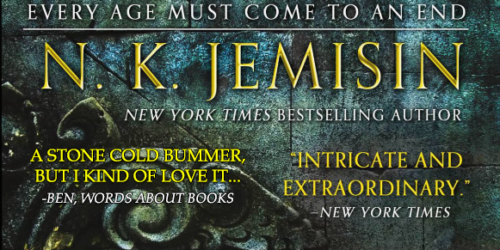Ben Reviews: Ogres by Adrian Tchaikovsky

I’ve never read a book by Adrian Tchaikovsky before. I didn’t know anything about him or Ogres before sitting down to read this book. I will admit that the cover did not give me much hope. The version I read had a cover that looked like a giant, poorly-cropped, orc character model from World of Warcraft wearing a top hat and holding a cane. The background is a photograph of an old timey town with a small helicopter circling the orc ala King Kong.
But, you know what they say about judging books by their covers. It turns out that this was not a terrible, self-published novel about steampunk ogres. It was actually a surprisingly well-written parable about slavery, class, and revolution. Any further summary risks giving away spoilers, and I think this story is best experienced with as little foreknowledge as possible.
I would recommend this book to just about anyone. It’s a quick read and its message is extremely relevant. One more quick caveat, though. The book is written in present tense, which I generally dislike. It is also written in the second person, which I generally loathe. I know I’m not the only one who gets a little itchy when reading books like that, but in this case I’m willing to excuse it. Bear with Tchaikovsky on this one, he’s going somewhere with it.
Spoiler Warning: The rubric will be kind of spoilery on this one. If you don’t want to be spoiled, just know I wound up giving it a 90/100 which I round up to 5/5 on Goodreads.
Rubric

Content and Ideas 4/5: I debated on giving this one a 5, but ultimately I went with a 4 for a few reasons. The first reason is that much of this has been done before by others and done equally as well. Much of the genetic engineering reminded me of Brave New World by Aldous Huxley. There are numerous novels that deal with class and revolution. Tchaikovsky adds an interesting twist to this at the end, but ultimately, he still leaves some questions of the practicality of this revolution unanswered. It wouldn’t be as troubling if Tchaikovsky himself hadn’t introduced so many of those questions and reminded us of them so frequently.
Organization 5/5: The story is very well-paced. In general, writing in the present tense is enough to make me dislike a book. Writing in the second person is enough to make me put it down. I stuck with this one, though, and I actually think that Tchaikovsky earned himself an exception to my rule. For this book it works, and it makes for a powerful moment at the end.
Use of Language 4/5: I read portions of the book and listened to portions of the audiobook. The audiobook for this one truly shines. Tchaikovsky’s writing has an excellent flow to it. In the hands of a capable narrator this made the book very pleasant to listen to. Considering some of the stylistic choices if the language hadn’t been very well handled then it would have been absolutely unbearable. That said, it doesn’t quite rise to the level of a 5.
Personal Preference 5/5: I really liked this book. I liked its themes. I especially liked the characterization of Isadora. I’ve read many books on the topic of slavery where a character like Isadora is either an angel or a devil. I think Tchaikovsky rounded her out nicely as a balance to Torquell.
Recommendation Strength 5/5: This is a short read that tackles themes that just about anyone could relate to. Slavery, class conflict, and revolution are touchy subjects and I think opinions will differ on how well this was executed based on our own individual circumstances. But regardless of whether or not you enjoy the book as much as I did I think it could be a starting point for a good faith conversation on the topics.






